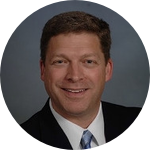About This Project
The heart struggles to effectively pump blood as we age. Our lab has shown exercise throughout one's life slows down this decline. In this study we will have mice voluntarily run on a wheel when they are young, not run once they reach adulthood and either 1) run on a wheel or 2) continue resting once they reach retirement age. If late life exercise improves the heart's function this study will provide some possible reasons.
Ask the Scientists
Join The DiscussionWhat is the context of this research?
As we age our heart begins to get stiffer and the heart's muscle, which is used to pump blood, gets thicker (like any muscle that is involved with weightlifting). We know our heart begins to change by the time we are 25-30 years old. But what exactly causes the changes and whether we can rescue these changes is unknown. This project will start to determine if we can rescue these changes if we introduce exercise when we are approximately 50 years old. We will use mice to answer this question since their lifespan is much shorter than ours and their hearts and blood vessels function similar to humans. By performing this study we can begin to understand if some of the factors we believe are causing our hearts to stiffen and thicken can be improved with exercise when we are older.
What is the significance of this project?
This project is quite significant for the understanding of successful aging. We will determine whether the introduction of exercise late in life can improve heart function and see how this exercise impacts the primary factor causing the heart to get stiffer (fibrosis). From these findings we can begin to introduce dietary changes, exercise, and specific drugs that influence the fibrosis of the heart. When the heart stiffens with aging it will struggle to pump blood effectively and accelerate the heart towards the number one cause of death with individuals over 60 years - heart disease.
Overall we will gain our next step towards understanding what one can do to help the heart to age successfully.
What are the goals of the project?
The funding provided for this project will be used to purchase 10 mice and house them throughout their full lifetime of approximately 18 months. The cost for housing mice is expensive but will allow the mice to live a full life so that we can study the true impact of aging on the heart. Lastly the money will be used to purchase chemicals to look at the fibrosis (impacts stiffness) in the hearts of the different mice.
Ultimately, the money provided will last approximately two years and will allow us to understand how exercise late in life can successfully impact the aging heart.
Budget
What we need to pay for includes:
- We will buy 6 week old mice and will keep them until they die (around 81 weeks old). These mice are expensive by are healthy and genetically identical (Their genes are nearly all the same. Similar to monzygotic twins.). These characteristics are critical to perform good research.
- We will house the mice on campus which will cost around $1 per day for each mouse.
- We will buy chemicals to help us look at how the hearts get old and stiff (fibrosis). We will wait to purchase these chemicals once the mice die.
We won't have to buy equipment for the mice to run and we won't have to pay for all of the research staff to help us since everyone will be volunteering to be involved with this great study.
Endorsed by
Meet the Team
Team Bio
I commonly work with a group of graduate and undergraduate students to successfully complete my research projects. Most every student will present a specific aspect of the research project at a professional meeting. As of right now, Ms. Hannah Arias, an undergraduate student in Exercise Science, is ready to get started on this project.
Michael J. Turner
Growing up where I did, I gained a strong desire to respect and understand anatomy and physiology of the body. During my graduate work I gained a huge respect for the heart but also a major interest in trying to unlock some of the answers regarding "what are the factors that cause the heart to decrease its ability to pump blood as we get older?". Currently my lab has determined when these changes begin and we are now turning towards discovering the things that cause the heart to age.
After obtaining my PhD at the University of Tennessee-Knoxville I worked for 3 years doing research in the area of exercise and the aging heart at Washington University School of Medicine in St. Louis MO. Over the past 18 years I've been performing research at the University of North Carolina at Charlotte with my lab in the Laboratory of Systems Physiology.
Lab Notes
Nothing posted yet.
Project Backers
- 3Backers
- 1%Funded
- $24Total Donations
- $8.00Average Donation

